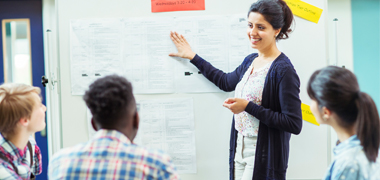
AI Occupational Exposure score unavailable For more insight, research the specific tasks and skills required for the role.
Explore all careersClassics Teachers instruct secondary students in ancient Greek and Roman languages and cultures, developing lesson plans and engaging in regular teaching duties.
Get qualified to work as a Classics Teacher with a course recognised across Australia. Speak to a training provider to learn more.
Secondary teachers (including classics teachers) in Australia currently earn between $90,000 to $110,000 per annum. These are median figures for full-time employees and should be considered a guide only.
 Courses.com.au Team
Courses.com.au Team
There are currently 144,000 high school teachers employed in Australia right now and some of these are classics teachers. Because this is a highly specialised field of teaching you may need to supplement your income by providing tuition to high school and university students until you secure a full-time teaching position.
 Courses.com.au Team
Courses.com.au Team
The best way to become a classics teacher is to complete a Bachelor of Classical Studies or Bachelor of Arts (Classics) and then complete your Master of Teaching (Secondary Education). Once you are degree qualified you can then register as a teacher with the education department in your state or territory.
Source: Australian Government Labour Market Insights 2023
 Courses.com.au Team
Courses.com.au Team



Classics teachers work at secondary schools across Australia teaching students ancient Greek and Roman languages and culture. They also introduce their students to classical art, philosophy, literature, and politics.
As a classics teacher you’ll be developing lesson plans and learning tools according the Australian Curriculum’s framework for classical languages and ancient history. You’ll have the regular duties of a high school teacher (grading papers, assigning homework, monitoring classroom behaviour, interacting with parents), but you may also be arranging school excursions and interactive experiences at museums and classical theatre productions.